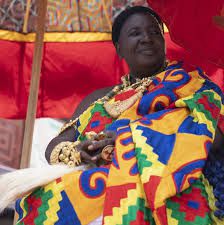
Introduction: A Controversial Foreword
In the tapestry of nation-building, historical accuracy serves as a critical thread, weaving together a shared narrative that underpins national identity and social cohesion. Distortions of historical facts, intentional or unintentional, can unstitch this delicate fabric, potentially leading to misunderstandings, division, and conflict. Within this context, I examine the controversial claims by the Agyapadie document, a text that has recently ignited public debate in Ghana.
The Agyapadie document, purportedly outlining the historical legacy and rights of the Akyem people, has gained significant attention due to its eccentric claims about the Akyem’s historical military prowess. Of particular interest is the assertion that:
“As the heirs of Nana Apeanin Kwaframa, Nana Kuntunkunuku, and Ofori Panin, our people were never defeated in the wars of old.”
It adds, “We were nobody’s subjects, and yet, after 1957, we were made to live in the shadows of the descendants of people who never defeated us in war while the Asante kingdom was uplifted to put us in the shade. In relatively recent times, the struggles and works of J.B. Danquah to restore Okyeman to its original glory were thwarted. But he fought bravely to the end.”
Lastly, it states that “Fully cognisant that we are currently part of the modern nation of Ghana (the name of which was originally proposed by the illustrious son of Ofori Paninfie of Okyeman, J.B. Danquah) and aware that it is currently made up of other diverse peoples, we have to assert our old selves and ensure that we no longer continue to live in the shadows of other kings and people, whose forebears we defeated in wars.”
But is it, indeed, confirmed that the Akyem Abuakwa or Akyem Kyebi stool and people were never defeated “in the wars of old”? Or is it a distortion of history or a fantasy? This claim, if true, would have profound implications for understanding the power dynamics and historical relationships among Ghana’s ethnic groups. It is essential to resolve the debate based on historical truths.
This paper, therefore, aims to fact-check this specific claim within the Agyapadie document, scrutinising its historical accuracy and implications. Our objective is not to diminish any group’s heritage but to contribute to a more accurate and nuanced understanding of Ghana’s rich and complex history.
To achieve this goal, I will employ a multifaceted methodology, namely historical examination and analysis of primary and secondary historical sources, to build a comprehensive picture of the conflicts involving the Akyem and their neighbours, definition of terms, to clearly explain what constitutes “defeat” in a military context, ensuring a consistent framework for analysis; a detailed, chronological account of notable wars and battles involving the Akyem, allowing for a thorough examination of the claim’s validity; and critical evaluation and analysis of the evidence against the claim made in the Agyapadie document, highlighting any discrepancies or corroborations.
Through this rigorous approach, I aim to contribute to a more accurate historical narrative, foster a deeper understanding of Ghana’s past, and support informed dialogue about its future as a unitary polity.
Military Context and Understanding of Defeat
Resolving the question requires engaging in a bit of war studies. To start with, what is military defeat, the kind of defeat that the authors of the Agyapadie document were arguing about? In military terminology, the technical meaning of “defeat” in war or battle generally refers to:
- Rendering an enemy force incapable of achieving its objectives or continuing combat operations effectively.
- Destroying or disrupting an enemy’s ability to fight, either by physically destroying forces and equipment or breaking their will to resist.
- Forcing an enemy to abandon their strategic or tactical goals.
- A decisive victory significantly alters the balance of power or control over contested territory or resources.
Defeat can also occur at different levels: a) tactical defeat, overcoming enemy forces in a specific engagement or battle; b) operational defeat, prevailing in a campaign or series of related battles; and c) strategic defeat, winning the overall war or conflict. Defeat, however, does not always mean total destruction of enemy forces. A force can be defeated if it can no longer pose a significant threat or challenge to the opposing side’s objectives.
Further, defeat is an outcome in war or battle where an opposing force overcomes the other side. It signifies the failure to achieve objectives or to prevent the enemy from accomplishing theirs. A tactical victory may involve completing specific goals, even if the overall mission remains unfulfilled. Defeat can also be assessed based on losses, where the defeated side suffers more significant casualties or setbacks. Ultimately, defeat undermines the ability to interfere significantly with the actions of friendly forces and attain their goals to the detriment of the opposing forces.
Narratives of Notable Wars and Battles Involving Akyem and its Neighbours
In setting the records straight, it is crucial to understand the historical context of wars and tensions among the Assin, Akwamu, Akuapem, Asante (Ashanti), Akyem Kyebi/Abuakwa, Akyem Kotoku, and other ethnic groups in the Gold Coast (now Ghana). The following are accounts of selected notable wars and battles involving Akyem Abuakwa and its regional neighbours that must be analysed, taking into consideration the preceding elements of defeat in war:
- Akwamu vs. Akra (Ga): In 1680-1681, Akwamu defeated Akra. In 1702-1703, there was another conflict between Akwamu and Akra forces.
- Battle of Feyiase, 1699-1700: Asante defeated Denkyira at the Battle of Feyiase. Denkyira later became part of Assin.
During or shortly after the reign of Asantehene Osei Tutu (1695–1717), Akyem was constantly under extreme military threat from Asante. This led to the expansion of the nascent Akyem asafo kyirem, which now included the village of Apedwa as the royal guards for the Ofori (Panin) Stool, a position of significant importance in the conflict.
- Battle of the Pra River, Akromantse (1712/1717): In 1712 or 1717, The Akyems killed Opemsuo Osei Tutu, riding in his palanquin, in the River Pra ambush, with all 300 of his ‘general staff’, near Akromantse village. Kromantse commemorated this calamity. Osei Tutu’s death resulted in the defeat of the Asantes. They established the Memeneda or Saturday oath in memory of that death. After Osei Tutu’s death, Akyem came under intense Asante military pressure.
- Battle of Nsakye (1730): The Akyem Kotoku defeated the Akwamus, taking control of Accra and the Ga-Adangbe areas along the coast.The Akwamuhene was forced to flee, and by 1731, the [old] Akwamu state had effectively ceased to exist. Akwamu founded [new state].
- Benna River Battles (1742): These battles were the sixth between the rival Twi polities, Asante and Akyem Kotoku. The Asante defeated Akyem, using their Hausa Corps, armed with bows and arrows, to defeat the Akyem.
- Asante Retreat (1742): Opoku Ware I invaded and conquered the Akyem Abuakwa and Akyem Kotoku. At some stage in 1742, the Asante-Akyem conflict was interrupted by a Sehwi invasion of Kumasi, leading to its inconclusive nature. Ultimately, the Asantes defeated the Akyems, effectively controlling access to the sea in the Ga-Adangbe areas.
- Akwamu and Akyem Wars (1742): In these Akwamu vs. Akyem (Akyem Abuakwa, Akyem Kotoku, and Akyem Bosome) wars, the Akyems and their allies defeated the Akwamus and gained control of the Ga-Adangbe areas.
- Rebellions (Mid-to-Late 1700s): The Asante put down Akyem (and Fanti Assin and Akuapem) rebellions and provocations in 1746, 1750, 1765 and 1772, suggesting Asante was victorious in these conflicts.
- Battle of Atakpame (1763–64): The Akyems, with support from the Dahomei and Oyo Empires, ambushed and defeated the Ashanti forces.
- Invasion of Akyem Abuakwa (1765): Asante, led by King Osei Kwadwo, defeated the Akyems. Many Akyem chiefs, including Okyehene Pobi Asomaning II, chose to commit suicide rather than be captured. This enabled the re-opening of the eastern trade route to Accra.
“According to a British report, “the Akims were half starved for want of provisions and in a manner surrounded by an army of Ashantees commanded by Sey Cooma, King of Ashantee and another of Fantees,” and so they fell an easy prey to the enemy. King Pobi and other important Akyem chiefs chose to blow themselves up with gunpowder rather than fall into the hands of the enemy.”[1]
- Asante vs. Akuapem (1811-): From 1811 through 1814, the Akyem and Akuapem actively opposed and blocked Asante’s access to the coast. This event underscores the Akyem’s resistance to the Asante during this period.
- Ashanti–Akyem–Akwapim War (1814-1816): In this war of Asante expansion to the coast, the Ashanti, led by Asantehene Osei Bonsu, defeated the Akyem-Akuapem alliance. This war was part of the Ashanti’s expansion to gain access to the coast.
- Battle of Dampon (1824): Akyem Abuakwa and Akuapem defeated Asante forces led by Kwaku Biri.
- Battle of Akatamansu-Dodowa (1826): Asante was defeated by the alliance of British and coastal polities, including Akyem and Akuapem,
- Battle of Bankoro-Wiawso (1835): An Asante army under General Nnubeng trounced the Dwaben-Akyem alliance army,[2] taking 3,000 prisoners from Krakyi and Bagyam. However, an Akyem force from Bagyam counter-attacked the Asante force, killing General Nnubeng and several other captains. The Asante army was saved from total destruction by the return and reinforcement of the plundering party.
Critical Evaluation
The Agyapadie document makes a bold claim: “As the heirs of Nana Apeanin Kwaframa, Nana Kuntunkunuku, and Ofori Panin, our people were never defeated in the wars of old.” Let’s evaluate this statement against the historical evidence presented in the chronological review of conflicts.
Discrepancies
The foreword’s claim is replete with several discrepancies, such as:
- Multiple recorded defeats: The historical record provides clear evidence of several instances where Akyem forces were defeated, directly contradicting the Agyapadie document’s claim: a) In 1742, for instance, Opoku Ware I of Asante invaded and conquered both Akyem Abuakwa and Akyem Kotoku; b) in 1765, Asante forces led by King Osei Kwadwo decisively defeated the Akyems. This defeat was so severe that many Akyem chiefs, including Okyehene Pobi Asomaning II, chose to commit suicide rather than be captured; c) the Asante-Akyem-Akwapim War of 1814-1816 resulted in another defeat for the Akyem-Akuapem alliance at the hands of Asante forces led by Asantehene Osei Bonsu.
- Periods of subjugation: The historical narrative indicates that after some of these defeats, Akyem was under “intense Asante military pressure,” suggesting periods of subjugation or at least diminished autonomy. This contradicts the implication in the Agyapadie document that the Akyem maintained continuous independence.
- Shifting alliances: The historical record shows that Akyem often fought in partnerships with other groups (e.g., with Akuapem, Dahomei and even Oyo, against Asante). This suggests a more complex political landscape than the one implied by the Agyapadie document, which presents Akyem as a singular, undefeated entity.
Potential Corroborations
While the main claim is contradicted by historical evidence, there are aspects of Akyem’s military prowess that the historical record does support:
- Significant victories: The Akyem did achieve notable successes, such as: a) The Battle of the Pra River (1712/1717), where Akyem forces killed Asantehene Osei Tutu and his entire general staff; b) the defeat of Akwamu forces in 1730, leading to Akyem control over Accra and Ga-Adangbe areas; c) The Battle of Dampon (1824), where Akyem Abuakwa and Akuapem defeated Asante forces.
- Resilience: Despite defeats, the Akyem consistently re-emerged as a significant military and political force. This resilience is evident in their resistance to Asante dominance throughout the 18th and early 19th centuries.
- Strategic importance: The frequent conflicts involving Akyem suggest they were a strategically important group whose allegiance or submission was crucial to regional power dynamics.
Analysis
The Agyapadie document claims that the Akyem “were never defeated in the wars of old” is not supported by historical evidence. Instead, the historical record presents a more nuanced picture:
- The Akyem were a formidable military force capable of inflicting significant defeats on their enemies, including the powerful Asante.
- However, they also suffered several major defeats, particularly at the hands of Asante forces.
- The Akyem’s political and military history is characterised by resilience, with periods of defeat followed by resurgence and resistance.
- The Akyem were often part of complex alliances, suggesting a more interconnected regional history than the Agyapadie document implies.
The discrepancy between the Agyapadie document’s claim and the historical record highlights the dangers of oversimplifying complex historical narratives. While the document may aim to instil pride in Akyem heritage, it does so at the cost of historical accuracy. This approach misrepresents the past and potentially undermines Ghana’s rich and nuanced history of inter-ethnic relationships.
Thus, while the Akyems have a proud military history with significant victories, historical evidence does not support the claim that they have never been defeated. A more accurate characterisation would acknowledge their military successes and defeats, emphasising their resilience and enduring importance in regional politics and warfare.
Concluding Thoughts and Recommendations
The historical distortions present in the Agyapadie document pose significant challenges to Ghana’s national cohesion and democratic governance. By claiming that the Akyem “were never defeated in the wars of old,” the document not only misrepresents historical facts but potentially undermines the delicate balance of inter-ethnic relationships that form the foundation of modern Ghana.
The Inherent Dangers
The dangers of such historical distortions are manifold and far-reaching:
- Erosion of trust: Misrepresenting historical facts can erode trust between ethnic groups, potentially reigniting old tensions and conflicts.
- Undermining national unity: By elevating one group’s historical status at the expense of others, such claims can fracture the sense of shared national identity crucial for Ghana’s continued development and stability.
- Distortion of political discourse: These inaccurate narratives can skew political debates, potentially leading to policies based on flawed historical understanding rather than current realities and needs.
- Educational impact: If left unchallenged, these distortions may find their way into educational materials, perpetuating misconceptions for future generations.
The potential consequences of allowing such distortions to persist are severe. They could increase ethnic tensions and political instability and weaken Ghana’s democratic institutions. In an era where national unity is crucial for addressing complex challenges such as economic development, climate change, and global competition, these divisive narratives pose a significant threat to Ghana’s progress.
Addressing the Challenges
To address these challenges and promote historical accuracy while fostering national cohesion, I recommend the following:
- Establish a national historical commission: An independent body should rigorously fact-check historical claims in public documents, including primary and secondary school levels, to promote accurate historical narratives.
- Enhance history education: Strengthen history curricula in schools to provide a more comprehensive and balanced view of Ghana’s past, emphasising the interconnectedness of different ethnic groups throughout history.
- Promote inter-ethnic dialogue: Facilitate forums and programmes that bring together leaders and scholars from different ethnic groups to discuss shared history and build mutual understanding.
- Encourage academic research: Support rigorous scholarly research into Ghana’s history, ensuring that diverse perspectives are represented and research findings are widely disseminated.
- Media literacy programmes: Develop and implement media literacy programmes to help citizens critically evaluate historical claims and identify potential biases or distortions.
Responding to and Correcting the Misconceptions
To respond to and correct misconceptions in public discourses, a team of historians and communication experts could be established to promptly address and correct historical inaccuracies in public statements or documents. Their efforts could be supplemented by institutions like the National Commission on Civic Education (NCCE) and the National Peace Council (NPC), among others, through public awareness campaigns to raise awareness about the importance of historical accuracy and its role in national unity. In the digital age, historical documents and archives could be made more accessible to the public, encouraging citizens to engage directly with primary sources. Last but not least, collaborative history projects could be initiated to unite diverse groups to document shared histories, emphasising everyday experiences and interconnections.
In conclusion, while the Agyapadie document’s claims may stem from a desire to celebrate cultural heritage, pursuing historical truth must remain paramount. By addressing these distortions head-on and implementing the suggested recommendations, Ghana can turn this challenge into an opportunity to strengthen its national narrative, fostering a more united and historically informed citizenry. This approach will honour the true complexity of Ghana’s rich history and contribute to a more stable, cohesive, and democratic future.
References
Aboagye, F. B. (Col) (2018). Indigenous African Warfare: Its Concept and Art in the Gold Coast, Asante and the Northern Territories up to the Early 1900s (reprint). Ulinzi Africa, Accra: pp 60, 63, 75-77, 318-318; 379, 444.
Broshenska, David (1972). Akwapim Handbook. Institute of African Studies. Ghana Publishing Corporation, Accra: p 45.
Claridge, Walton W (1915a). A History of the Gold Coast and Ashanti, From the Earliest Times to the Commencement of the Twentieth Century, Vol. I, Murray, London: pp 239, 259–60.
Crowder, Michael (1971). West African Resistance, The Military Response to Colonial Occupation, Hutchinson, London: 1971: p 26.
DEFEAT | English meaning – Cambridge Dictionary. https://dictionary.cambridge.org/dictionary/english/defeat.
Defining Defeat – The Strategy Bridge. https://thestrategybridge.org/the-bridge/2020/4/13/defining-defeat.
Ellis, A. B. (1971). A History of the Gold Coast of West Africa, Rowman and Littlefield, Totowa, New Jersey: pp 107–108, 123.
Fynn, J. K. (1965). The Reign and Times of Kusi Obodum, 1750-64. Transactions of the Historical Society of Ghana. 8: 24–32. JSTOR 41403567. S2CID 155465956.
Fynn, J. K. Asante and Akyem Relations 1700 — 1831. Michigan. file:///Users/colfestusaboagye/Downloads/asrv009001004 (1).pdf.
Kufuor, A. M. (2013). Asante History; Akyem Abuakwa and Dagomba Wars. GhanaWeb, 16 Apr 2013. https://www.ghanaweb.com/GhanaHomePage/features/Asante-History-Akyem-Abuakwa-And-Dagomba-Wars-271133.
Reindorf, C, C. (1966). The History of the Gold Coast and Asante, Ghana Universities Press, Accra: pp 67, 152
Ulzen, E. A. (2017). July 27, 1955: Select Committee of the Gold Coast Legislative Assembly Rejects Federal Constitution. Ghana History Moments. Ulzen Memorial Foundation, 27 Jul 2017. https://www.eaumf.org/ejm-blog/2017/7/29/july-27-1955-select-committee-of-the-gold-coast-legislative-assembly-rejects-federal-constitution.
US Army (2016). Glossary. Army Doctrine Publication (ADP) 3-0, Operations, 31 July 2019: p 3. https://irp.fas.org/doddir/army/adp3_0.pdf.
Ward, W. E. F. (1958). A History of Ghana. Ruskin House, George Allen & Unwin Ltd: pp 149, 157.
[1] Fynn (1965), Note 61: W.I.C. 116. D/G J.P.T. Huydecoopper, Elmina, 8 May 1765 T70/31 W. Mutter, Gilbert Petrie and John Crossle 10 and 20 July 1700. Osei Kwadwo was also referred to in European records as Osei Kuma or Osei the Younger.
[2] Dwaben, which had seceded from Asante, was attempting to regain control over its territorial lands in Asante, including Krakyi and Namonsi (Bimbila).
The post Col Festus Aboagye: Unravelling the myth of invincibility, a critical examination of Akyem military history first appeared on 3News.
Read Full Story













Facebook
Twitter
Pinterest
Instagram
Google+
YouTube
LinkedIn
RSS